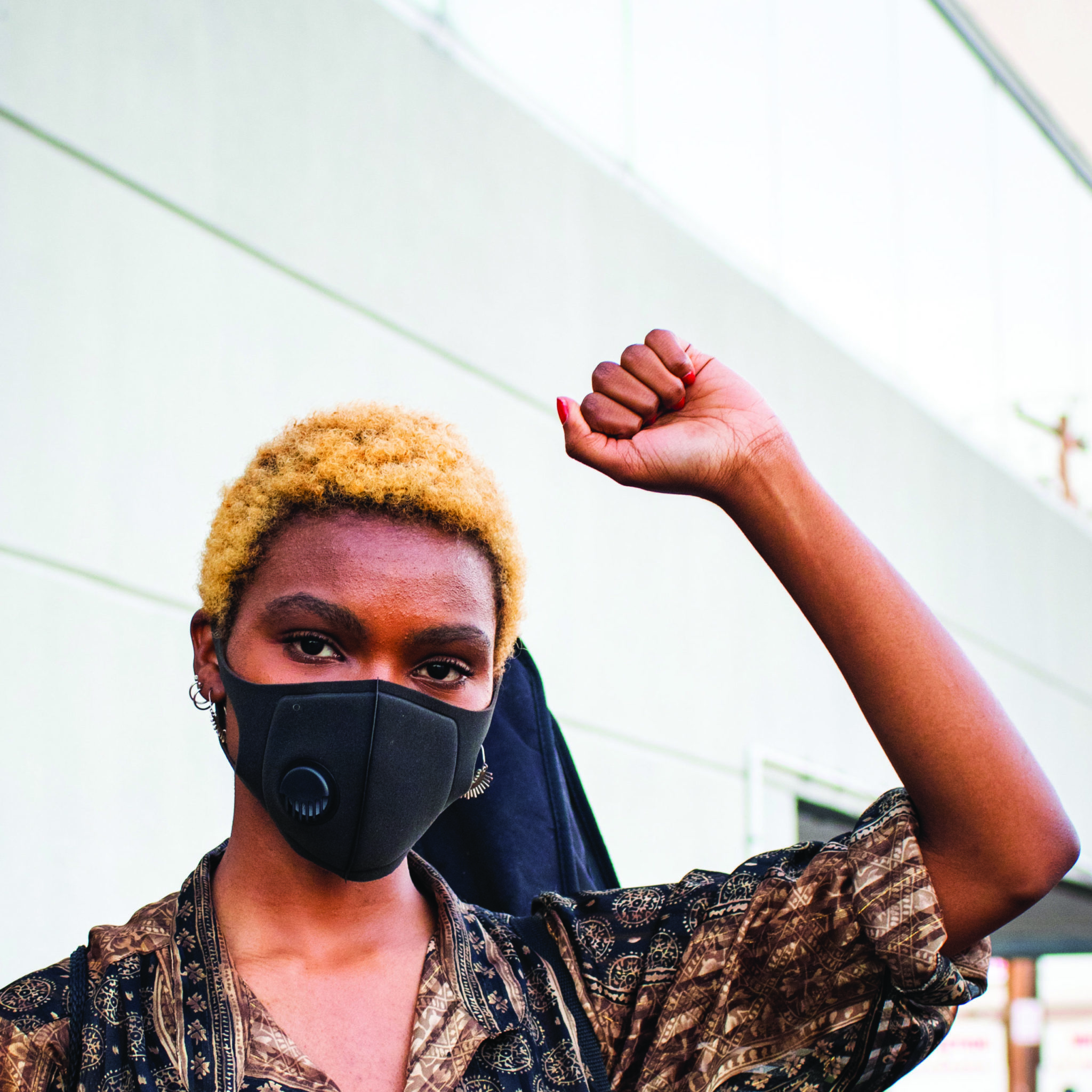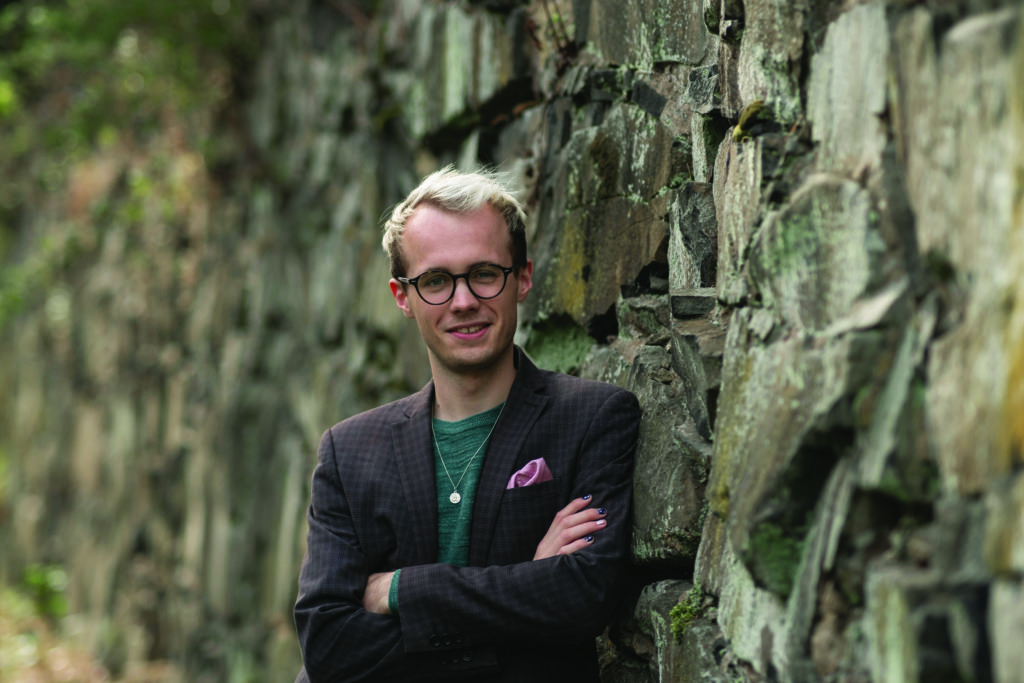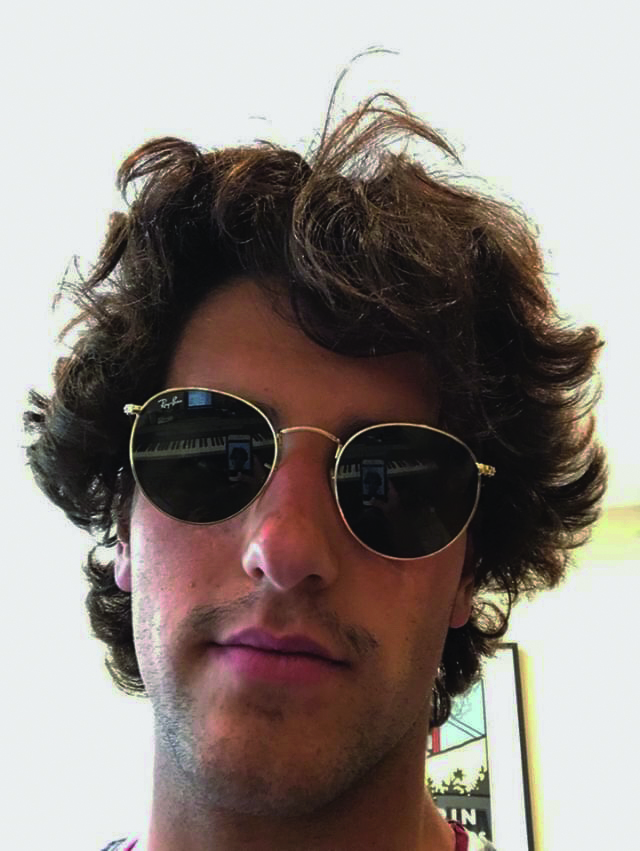
Courtesy of Hadassah Krigsman
Yale student musicians often showcase their work at venues on campus and beyond, but the coronavirus pandemic flatlined live performances for the duration of the semester. Each week for the month of September, the News will feature recent student-released music to provide a platform for discovery aside from a stage.
Gabrielle Barnes “2020”
“Got so many words to say, yet I can’t speak / and what’s the purpose of life if I can’t breathe,” sings Gabrielle Barnes ’22 in her new song, “2020,” which was produced by collaborator Jane Watson.
Thus far, 2020 is marked by COVID-19, TikTok and protests against police brutality. Barnes wrote “2020” in the wake of George Floyd’s murder. The song explores how the year’s events affect the world.
“I don’t think I’ve ever felt collective grief or collective trauma in a way that I felt it this summer,” Barnes said.
“2020” opens with recordings from protests that Barnes and her friend helped lead in Freeport, Connecticut. Interspersed throughout the song are protest chants — “We want justice, we want peace!” — from Barnes, her friends, the first Black mayor of Freeport and others.
Barnes found “love and acceptance” through the protests she organized and participated in, she said, with so many participants finding common ground in the collective disavowal of injustice. Barnes’ song reflects some of the joy that came out of these protest experiences.
Much of Barnes’ recent songwriting has been inspired by alternative and R&B music, particularly artists like Solange and Blood Orange. While she would typically explore both music and grief in her Yale communities — like the Afro-American Cultural Center, or the a cappella group Shades of Yale — the pandemic kept her from these spaces. Instead, she found emotional release in solitary writing. Writing helped her work through feelings she struggled to articulate and helped her grieve the loss of life from the police killings and the pandemic.
“So I was thinking, like, what’s the purpose of life, if you could just be killed unjustly? And never get justice?” Barnes said.
According to Barnes, she incorporated TikTok into the song because the social media app gave young people a platform from which to reckon with cultural appropriation — many TikTok dances made famous by white women are inspired by the way Black women have danced to rap and similar genres for a long time. The dancing in the music video, choreographed by Silver Liftin ’22, visually represents this reckoning.
“I’m not saying don’t dance to those dances. I’m just saying that when Black people are [dancing to rap music], it’s seen as threatening,” said Barnes. “But when white people do it, it’s fun.”
Harry Castle “(Mostly) Songs About Boys”

Composer, tenor and musical director Harry Castle GRD ’21 grew up training to be a classical composer. Ensembles including the Da Capo Chamber Players and chamber ensembles of BBC Symphony Orchestra have played Castle’s music. Until recently, writing for musical theatre wasn’t part of his “serious musical vocabulary” — he did it for fun.
Castle is now studying composition and musical theatre writing at Yale. Castle’s album “(Mostly) Songs About Boys” is a collection of musical theatre songs that are, as the title suggests, mostly about boys.
According to Castle, the direct vocal style and use of the vernacular lend immediacy to musical theatre compositions. Castle is drawn to the genre for this immediacy, and for its ability to tell complex stories through both speech and song.
Song titles include “Done With You,” “Your Man” and “Hometown Hercules.” Each of the album’s eight songs is inspired by a different character. Castle said the songs are driven by each character’s narrative — he considers a storyline and a character’s feelings before he can compose a song.
“(Mostly) Songs About Boys” was Castle’s first foray into producing music. He sang and played violin and piano on the album. Family and friends filled in on cello and clarinet. Everything else? Castle explored instrumental sounds made by synthesizers, sequencing and “a lot of YouTube videos.”
Now, Castle is working on a full-length musical about queer joy that explores what it means to be queer and married.
pj frantz “woah” and “hey”

2020 has not left much room for joy. But PJ Frantz ’22 released two songs — “woah” and “hey” — that are “upbeat and groovy and happy.”
Though Frantz started writing “woah” in New Haven when everything around him felt “cloudy and rainy and depressing,” the finished song is anything but. “hey” has a similar summery vibe. For Frantz, the songs provided some happiness in a year filled with tragedy.
Frantz has been writing primarily acoustic music for years. After a hiatus, he came to Yale and spent many nights in the Hopper College music studio exploring music and electronic music production with other Yale musicians. Some of them — Jason Altshuler ’23, Max Lukian ’20 and Abby Walker ’23 — contributed to “woah” and “hey.”
Using more electronic aspects in his music has given him more of an artistic identity. He describes his music as a “cool niche” between pop, R&B and “maybe a little bit of folk and jazz.”
“I have so much control over the sounds I’m creating,” Frantz said.
Altshuler — who plays guitar and bass for many Yale artists and is featured on both “woah” and “hey” — said that Frantz’s music has a special texture that combines electronic synth-based textures with real instruments.
“It’s fun because [Frantz] is a fantastic producer and makes things sound awesome,” Altshuler said. “Since a lot of it is electronic, it’s nice to add that live tone with the realness that feels like music being played by people.”
Frantz is building towards an E.P. that will contain “woah,” “hey” and other songs that are “more nuanced” and less happy-go-lucky, he said.
Phoebe Liu | phoebe.liu@yale.edu







